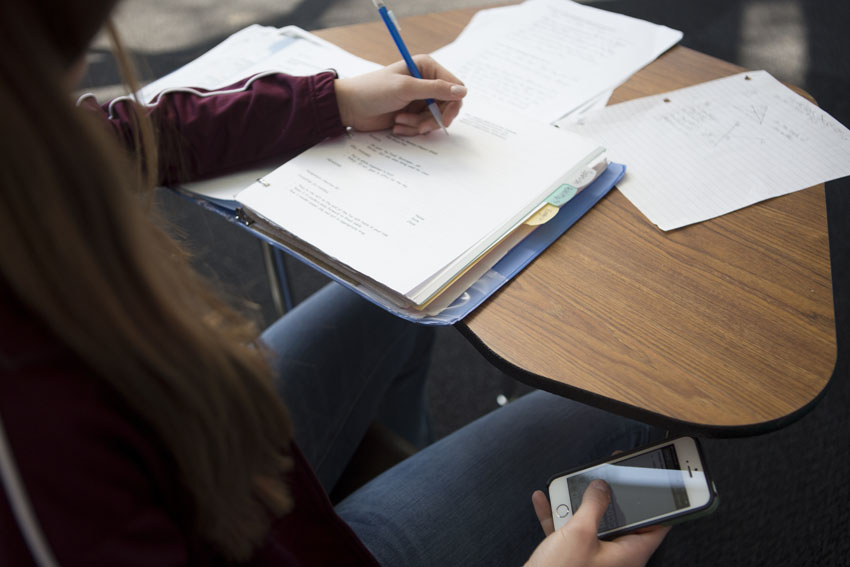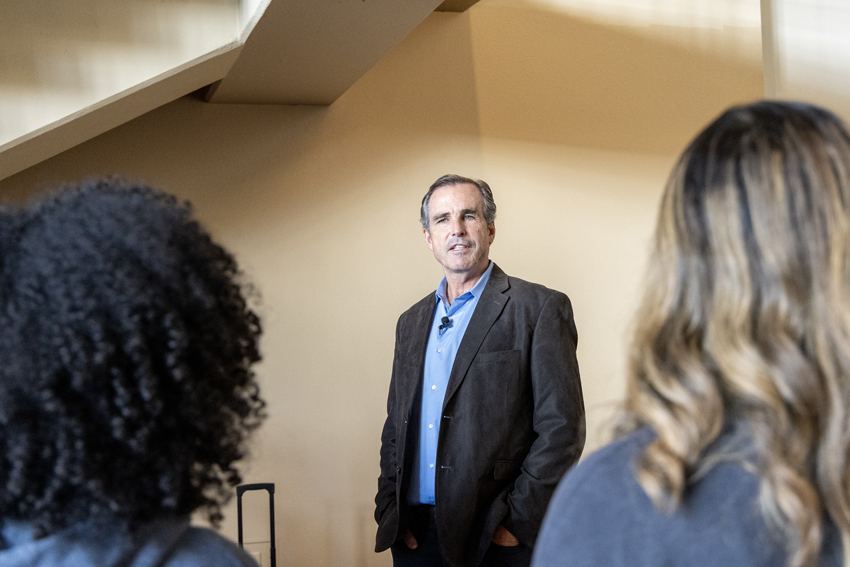
Cheating in class robs of necessary knowledge
The main cause of academic cheating remains same for all cheaters. The fear of failure haunts not only those involved in academic dishonesty but all individuals regardless of age, background, or frame of mind.
Teenagers, in particular, strive to impress their friends, family, and elders so they can be seen as mature and capable of achieving desired success. Thus failure is taken by many not only as an alternation in academic standing but a loss of reputation from those who surround them.
Another justification for plagiarism and academic fraud is simply being human. As humans, people always try to find effortless and simple ways out of difficult situations even if the situations are not difficult. In this day and age people are more idle than ever before, and if an easy way exists then why not take it instead?
However, in spite of the few justifications regarding plagiarism and academic dishonesty, such choices remain dishonorable, unlawful, and simply unsuitable for students. Moreover, it is the responsibility of the student to manage their time wisely so that studying for tests or quizzes does not become a last minute task.
Erin Wilson, ’18, thinks students choose to be involved in academic dishonesty because of the lack of academic ambition and unwillingness to learn.
“Cheating is completely wrong because it is not pushing you to learn,” Wilson said. “I think it really affects those who constantly cheat because it can easily cause them to grow lazy and not learn the things they should be learning. However, I also think students do have the choice to cheat, though it depends on whether or not they are actually willing to put in the work.”
There are not many ways to define cheating. It’s just using tactics to get an advantage over other people, or using any other outside sources for your own benefit. I think there are negative and positive outcomes to this. However, I do think teachers should be more concerned, and to help prevent cheating they could print out two different versions of tests or quizzes — Carson Cunnings
To dedicate time for academics is as important as to believe in oneself and aim for the best results. Indolence and uncertainty will never get anyone far, but hard work and determination lead to success. Furthermore, it is impossible to become truly successful by taking effortless routes and stealing the work of others.
It is easy to hurt oneself by cheating, as such deed robs the student of opportunities to learn that are essential and necessary. The mandatory knowledge would have to be obtained one way or another, and often if not acquired at a young age becomes less accessible later in life.
Freshman Megan LeBlanc believes academic cheating is inappropriate and entirely wrong, as it deprives of the ability to acquire knowledge and understand the importance of academics.
“You can compare cheating to lying,” LeBlanc said. “That is because you are being dishonest with what you write. Cheating allows the cheaters to get the right answers, which is really worth nothing if they are not your honest answers. I think teachers should be more concerned about cheating in class and help prevent this by paying more attention to the students’ actions.”

Another student on campus Carson Cunnings, ’19, thinks academic dishonesty is unfair to those who work diligently and dedicate time for academics.
“There are not many ways to define cheating,” Cunnings said. “It’s just using tactics to get an advantage over other people, or using any other outside sources for your own benefit. I think there are negative and positive outcomes to this. However, I do think teachers should be more concerned, and to help prevent cheating they could print out two different versions of tests or quizzes.”
Campus math teacher Angie Counts takes academic cheating in a very serious manner and sets specific rules and boundaries in order to prevent this type of dishonesty.
“I think if I put the definition of cheating in one word it would be non-integrity,” Counts said. “The rest of the students who did not cheat will begin to resent the fact that cheating happens because they are doing the work and get the credit, but there is also someone who does not do any work yet still gets the credit.
“The trust has been broken when cheating occurs,” Counts continued. “The trust in the relationship between the teacher and the student. In my class, I require a cover sheet every time there is a test, and we all spread out to give ourselves some room so that no one is tempted to look at someone else’s paper.”
It is important to take academic dishonesty as a serious matter because of the effects it can cause outside of academics. Such action in the academic environment may affect choice making in everyday life and perhaps encourage bad habits such as lying and stealing.
To read another article check out, Mayor Lee Brand shares vision with Feather staff.
This writer can be reached via email: Tatiana Iest.




